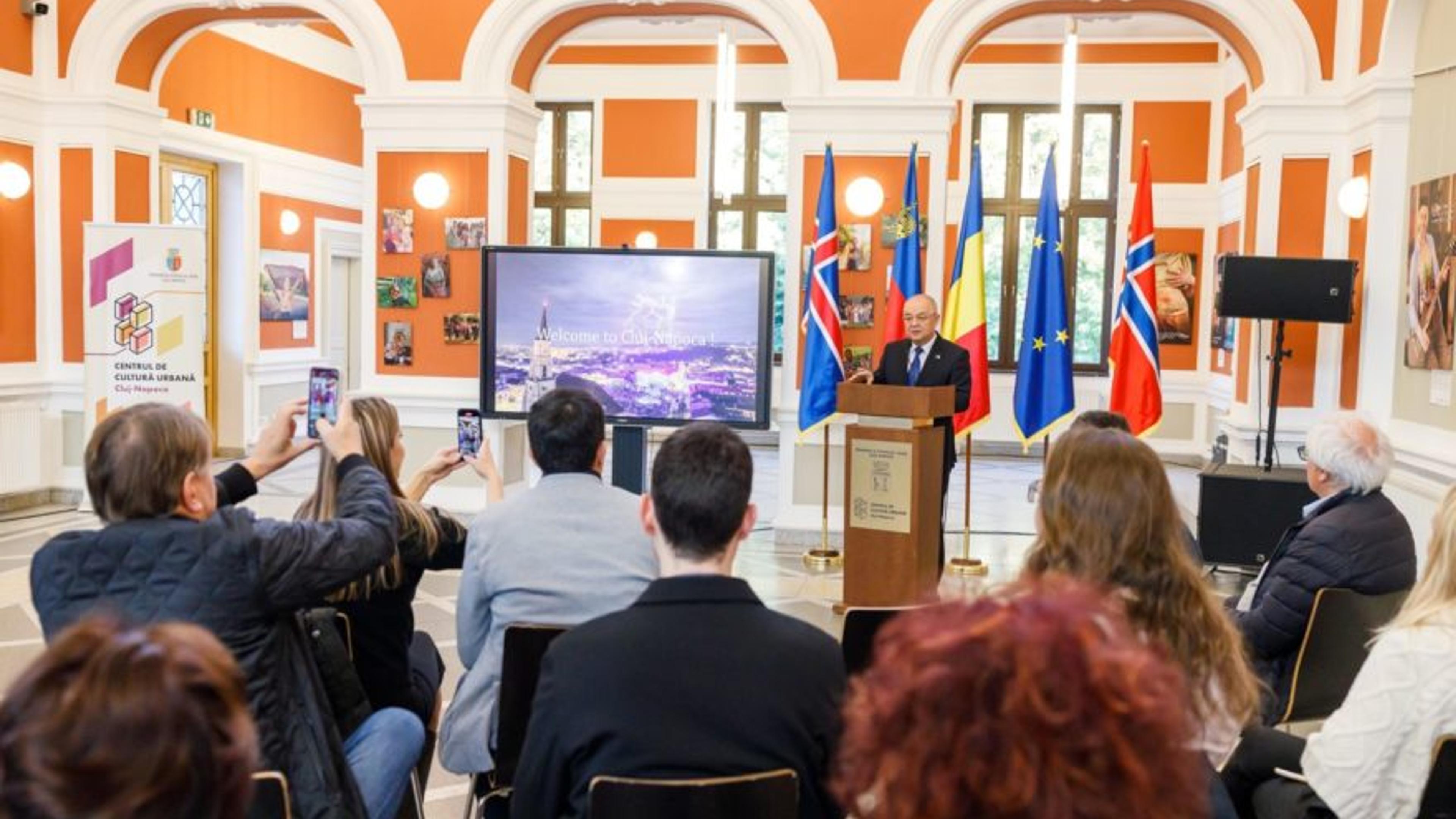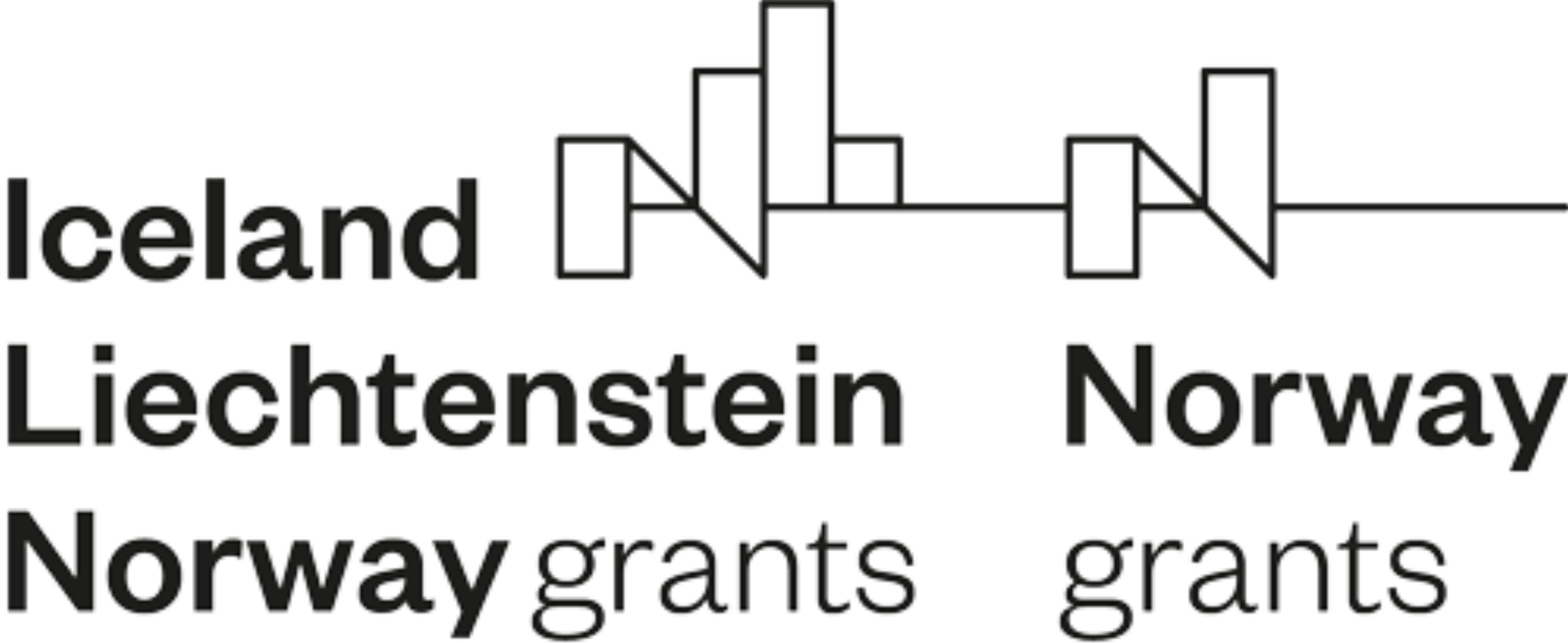Romania: Visits to Successful Energy Projects in Transylvania - Cluj-Napoca and Alba Iulia

The visiting delegation included representatives from various key institutions involved in the EEA and Norway Grants.
The representatives were from Innovation Norway - both the Oslo office and the Bucharest office, the Norwegian Embassy in Romania, the Norwegian Water Resources and Energy Directorate (NVE), the National Energy Authority from Iceland (OS), the National Focal Point for the EEA and Norway Grants in Romania, the Secretariat of the EEA and Norway Grants in Brussels (the FMO), the Romanian Ministry of Environment and the Romanian Ministry of Energy.
The visitors were welcomed by the Mayors of the municipalities of Cluj-Napoca and Alba Iulia as well as the representatives working on the projects. They were presented with the projects, their implementation and the results as well as the effects that the projects have had on the community.
Cluj-Napoca - "a First Step towards the Green Transition"
Cluj-Napoca is the largest city in Transylvania, Romania. The city has set the ambitious goals of transforming itself to a climate-neutral city by 2030.
Cluj-Napoca is currently implementing a total of five projects on the green transitions with financing by Norway, Iceland and Liechtenstein through the EEA and Norway Grants. Of these, four projects aim to increase energy and one project focus on circular economy. The total value of the projects is approx. 5 million euro. The projects funded through the EEA and Norway Grants include solar panels installed on two agri-food markets of the municipality, on the Gheorgheni sports base and on four different public schools. Read more about the projects: Romania: Green light – public lighting system with green energy in Cluj - Napoca (innovasjonnorge.no)
Mr Emil Boc is former Prime Minister of Romania and the current Mayor of Cluj-Napoca. According to the Mayor, the EEA and Norway Grants has helped to start the green energy transition in Cluj-Napoca. Mayor Emil Boc told the local press that this is a first step towards Cluj-Napoca's transition towards green and renewable energies. He underlined that solar panels help, on the one hand, to improve the quality of life of Cluj residents, by reducing polluting energy sources, and on the other hand, to save funds from the local budget, by decreasing energy bills.
The newspaper quotes Mr Boc in saying that:
"This project fits into a broader vision of Cluj-Napoca City Hall of switching to green, non-polluting energies. Therefore, the project implemented with the help of Norwegian funds works for the local government as a pilot project that paves the way for the transition to renewable energy sources. It is a starting point for our city and we want to continue on this road."
Read more about the project: Romania: Green light – public lighting system with green energy in Cluj - Napoca (innovasjonnorge.no)
Onwards to Alba Iulia
Alba Iulia is a historic city in the Transylvania region known for its star-shaped fortress which is the largest and best preserved in Romania. The municipality takes an active approach to increasing the quality of life of its citizens, including the energy efficiency and security.
The city of Alba Iulia is currently implementing the project 'Innovative Energy Efficiency System at the Home for the Elderly in Alba Iulia'. The visiting delegation were welcomed by an enthusiastic team and presented with impressive results.
The project is a concerted effort to modernise the public administration building that is the elderly home. In the project, the Alba Iulia Municipality partnered with the company Societatea de Inginerie Sisteme (SIS) to develop an innovative method of harnessing geothermal energy to the elderly home. The mayor of Alba Iulia, Mr Gabriel Plesa, presented the project and its results. Read more about it here: Romania: Geothermal Energy for Energy Security in an Elderly Home (innovasjonnorge.no)
The mayor Mr Plesa outlined how the funding has reduced the costs for gas and electricity bills with approx 30,000 euro per year. It has also has a green effect. The project has reduced energy consumption by 69% per year and CO2 emissions by 175 tons per year.
See the video testimonial from the project on YouTube.
The EEA and Norway Grants in Cluj-Napoca
In total for Cluj County, the contribution from Norway, Iceland and Liechtenstein through the EEA and Norway Grants across all sectors totals around 40 million euro in funding to 67 projects. See what Mr Boc has to say about the funding from the EEA and Norway Grants.
